Agriculture & Environment
New CAES Project to Improve Tea Production in Uganda
Published
2 years agoon
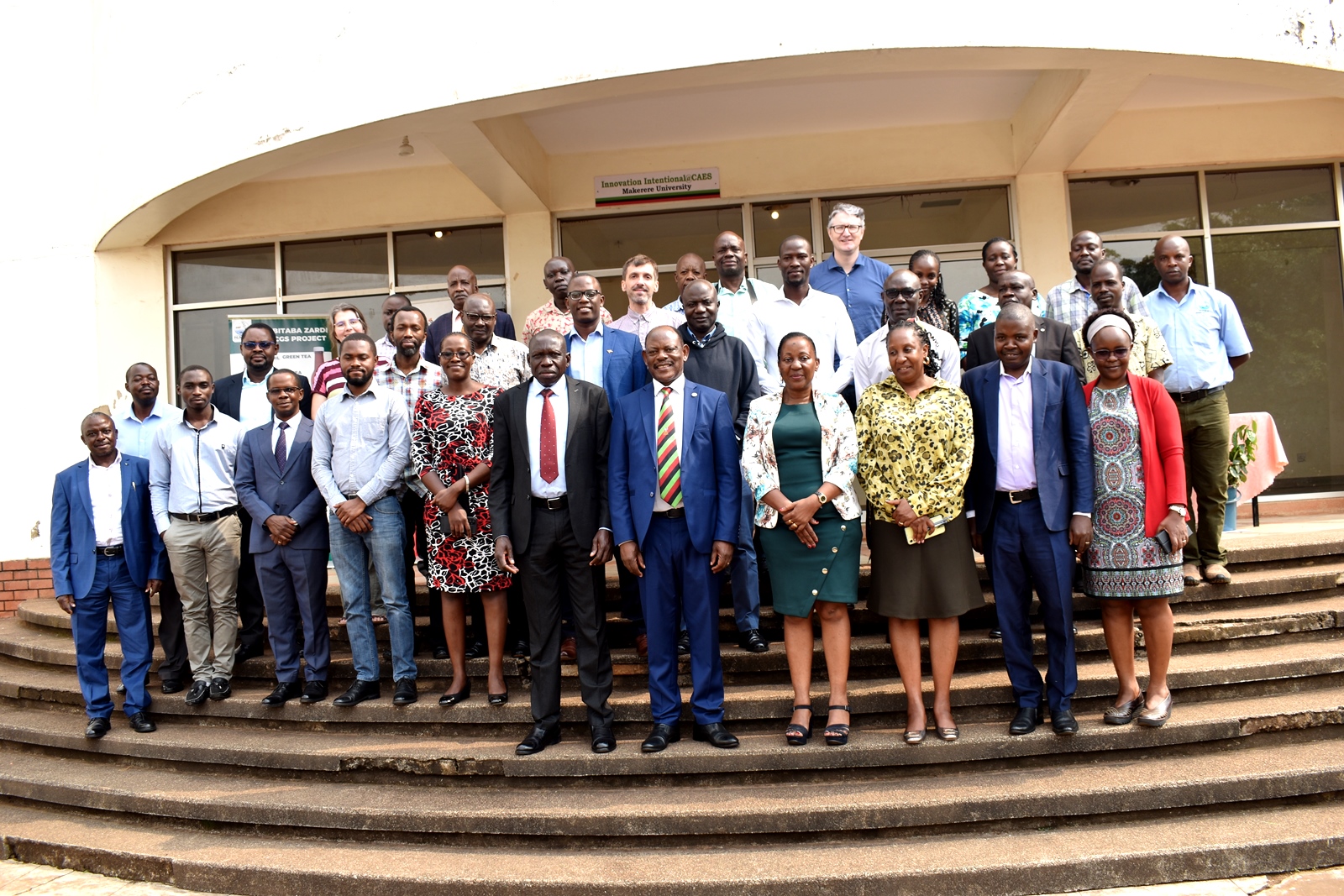
*****Funded by the Danish Fellowship Centre under the Ministry of Foreign Affairs, Denmark, the Project, Nature-based Solutions for Climate-Resilient Tea Production in Uganda (NbS4Tea), is envisaged to sustainably bridge the tea yield gap in Uganda by developing research-based NbS for enhanced climate resilience of tea production systems.
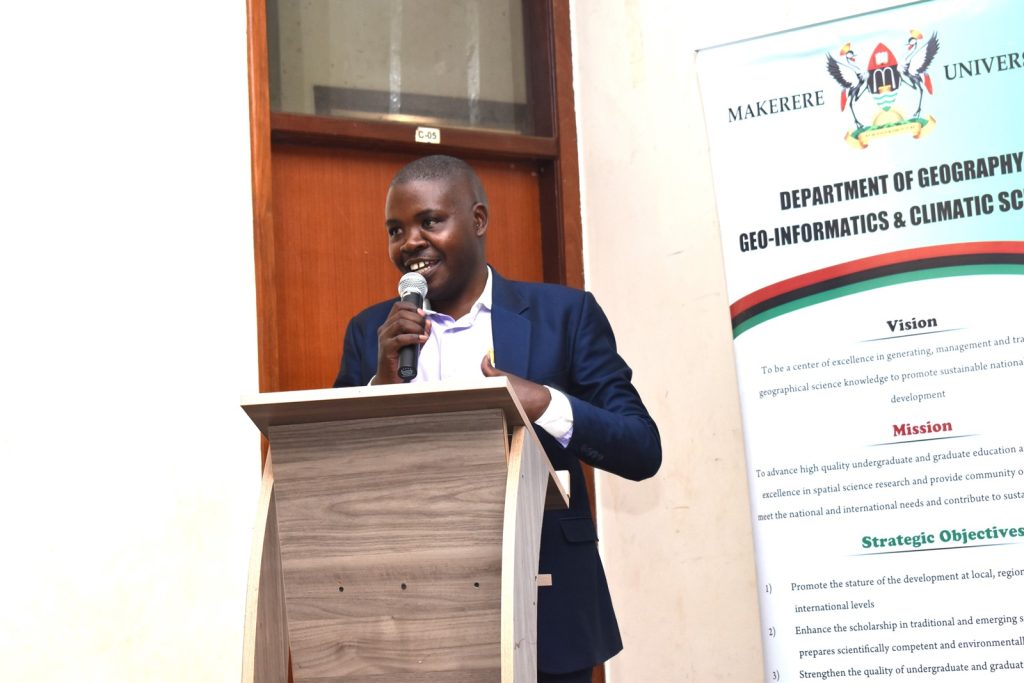
Overview
Tea is a widely consumed and one of the oldest beverages in the world ranked second after water. Reports indicate that in Uganda, tea is the second-largest export crop after coffee, grown by both large-scale (32%) and smallholder farmers (68%). Tea production is increasing in rural areas due to its high demand and associated benefits in the provision of jobs, incomes, and health. The third National Development Plan (NDPIII) 2020/21-2024/25) identifies tea as a key agricultural crop to contribute to the national Vision 2040 of a higher middle-income country with sound food security. Yet, current tea production in Uganda is neither optimal in terms of field management, sustainable intensification, and biodiversity potential, nor climate-resilient under increasingly erratic weather patterns. Farmers in Uganda still grow colonial-era (old) tea varieties that are not climate resilient or properly managed, resulting in low yields of 6 tea hectares per year. Tea production is negatively impacted in yield and quality by climate change impacts on soil quality, disease and pest incidence, drought and heat waves. About 75% of Ugandan soils, upon which 68% of smallholder farmers derive their livelihoods, are predominantly Ferralitic, with excellent physical, but poor chemical properties (low organic matter and nutrient levels, high phosphorus fixing potential). Some farmers circumvent these challenges of soil infertility by applying expensive inorganic fertilizers that consequently pollute the environment and increase greenhouse gas (GHG) emissions. Soil interventions that can sustain the cultivation, productivity, and quality of tea by improving soil fertility are needed. Also, weather variability, increased temperature and erratic rainfall significantly reduce crop yield and tea is no exception. Compared to the 1960s, the temperature in Uganda is expected to increase by 1.8°C by 2050 and rainfall will be more erratic. These abiotic climate stresses act directly and negatively on the tea plants, and increase outbreaks of tea pests and diseases, including arthropods such as mites and mealybugs. Developing methods for detection of plant growth dynamics and stress, improving soil status, and identifying climate-resilient tea varieties resistant to pests and diseases is crucial. There is also a wide knowledge gap in Africa regarding the impacts of the current climate, its variability and expected climate change on tea production systems, especially for smallholder farmers and their sustainability. Bridging this gap can be done by a combination of surveys, modelling, and field experiments.
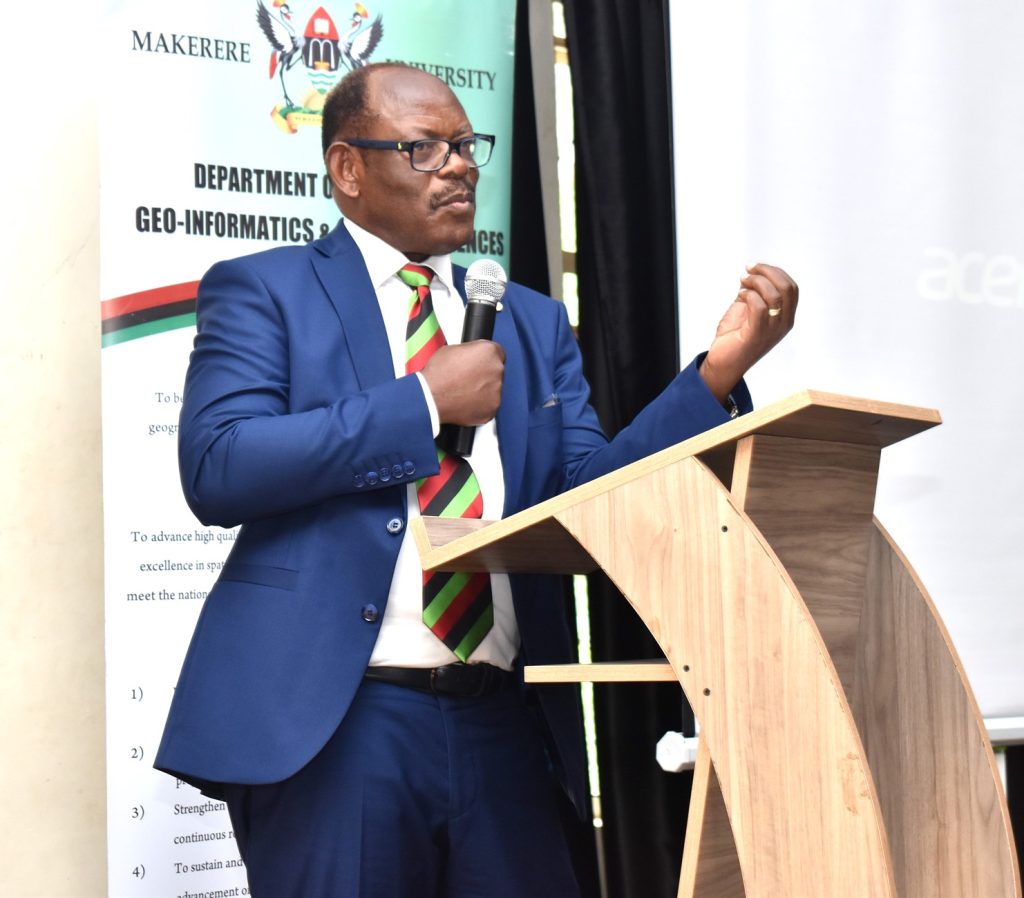
Fixing the problem through NbS4Tea
A new project by Makerere University College of Agricultural and Environmental Sciences (CAES) in collaboration with NARO, Aarhus University (Denmark), Uganda Tea Association, and Kickstart International is envisaged to address the challenge and improve tea production and productivity in Uganda. Launched by Makerere University Vice Chancellor, Prof. Barnabas Nawangwe on 16th January 2024, the project titled; Nature-based Solutions for Climate-Resilient Tea Production in Uganda (NbS4Tea) will identify and quantify climate change impacts on tea yield and quality in Uganda. Through the project, the research team will identify and recommend climate resilient tea varieties, develop new methods and knowledge on locally available organic resources and NbS, innovate and deploy affordable irrigation technologies, empower vulnerable communities in tea production and processing, and identify export market strategies to substantially increase tea production and productivity in Uganda.
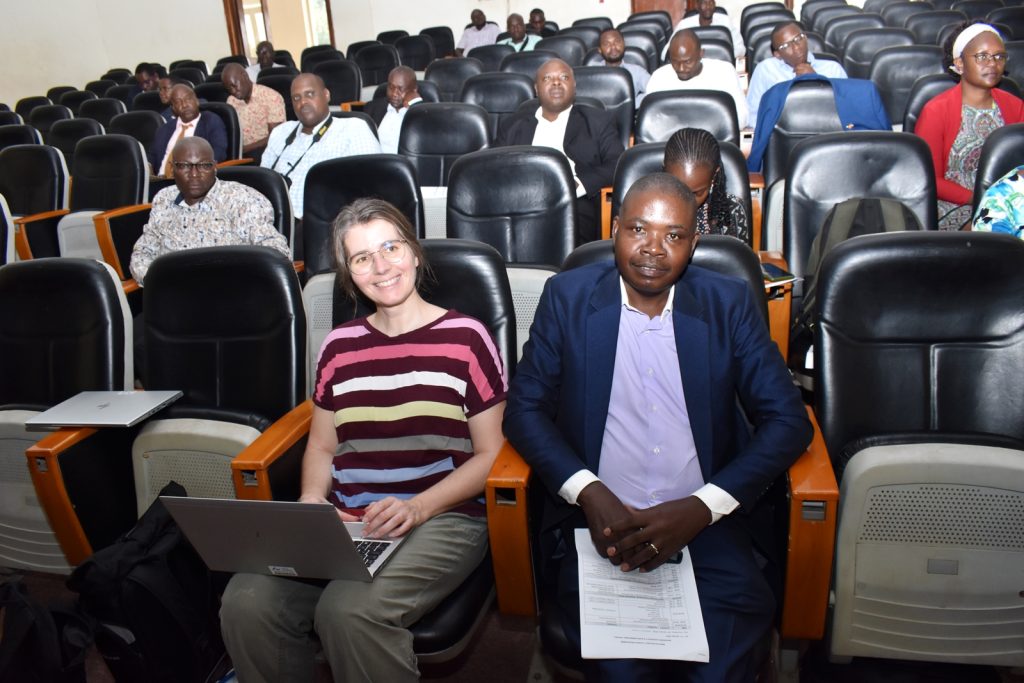
Funded by the Danish Fellowship Centre under the Ministry of Foreign Affairs, Denmark and led by Dr Emmanuel Arthur from Aarhus University, the overall objective of the project is to sustainably bridge the tea yield gap in Uganda by developing research-based NbS for enhanced climate resilience of tea production systems.
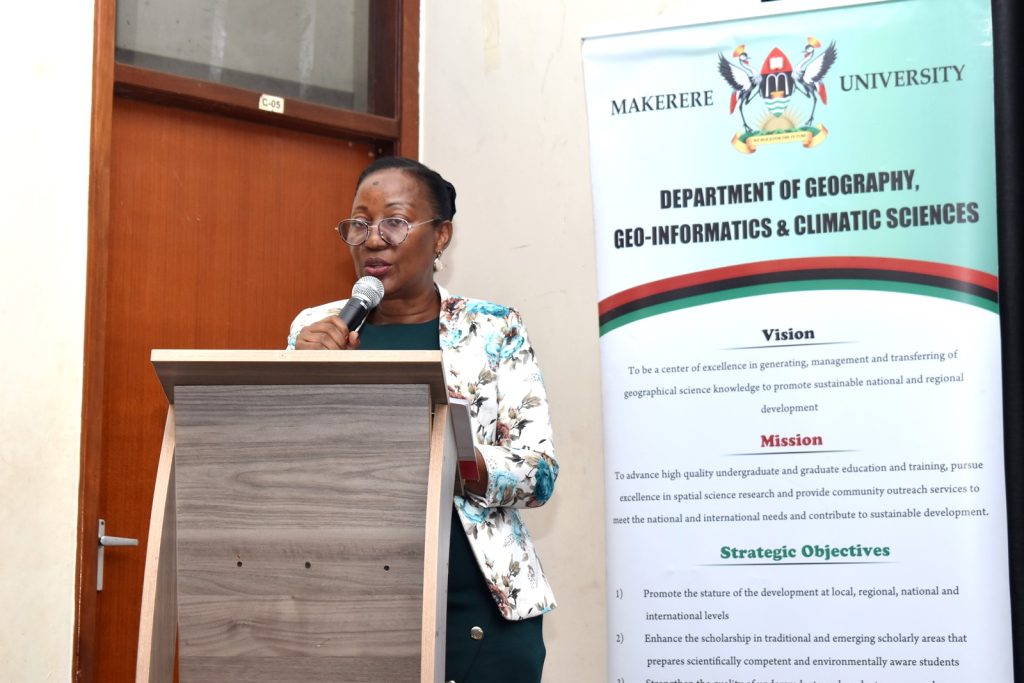
Specific objectives:
- The project team will identify and quantify climate change impacts on tea yield and quality based on historical and newly obtained data and novel data mining methods;
- Screen, select and recommend tea varieties adapted to abiotic (drought and heat) and biotic stresses (diseases and pests);
- Develop new knowledge on the potential of local waste biomass (tea prunings, banana pseudostems and peels) as soil amendments- mulch, compost, biochar, to recycle nutrients, improve soil fertility, increase carbon sequestration and alleviate drought;
- Reveal NbS through agroforestry combined with organic mulch, irrigation and resilient tea varieties that increase biodiversity and tea yield;
- Innovate new methods to enhance tea production under climate change through rainwater harvest and climate-smart irrigation infrastructure
- Empower vulnerable groups (women, youth, people with disabilities) in tea production and processing to ensure multi-actor involvement and socio-economic benefit outreach of the proposed NbS in tea cultivation and production.
- Identify export market strategies for NbS tea products, aligned with consumer preferences.
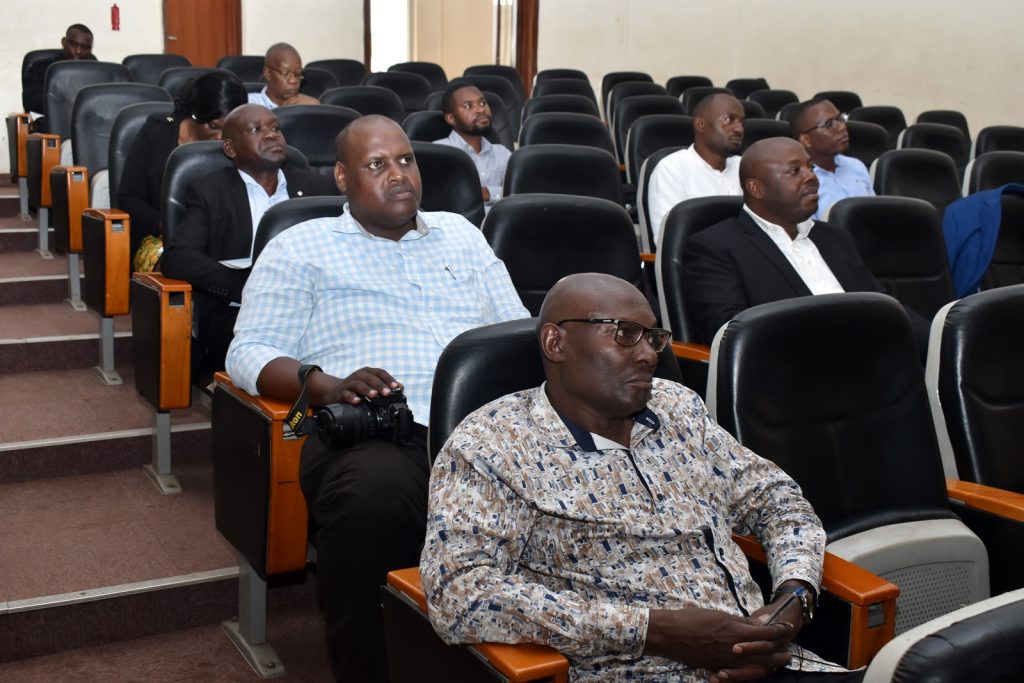
Expected outcomes and outputs
The expected outcomes tackle both knowledge and tools. These include: (1) Increased tea production, productivity, and biodiversity through the adoption of NbS in an integrated plant-soil management system, (2) Increased research and technical capacity of Makerere and R-ZARDI for (i) irrigation science (ii) remote sensing campaigns and application to tea physiology studies, and (iii) crop simulation modelling, (3) Holistic stakeholder insight on economic feasibility, consumer acceptance and market access strategies, especially for vulnerable groups in the tea value chain, (4) Increased job prospects for youth and women in tea production sub-sectors, (5) Improved social status and increased incomes of tea farmers, traders, and exporters, and (6) Improved economic and environmental quality by recycling biomass waste into value-added products dedicated to soil enhancement. The expected outputs are quantifiable and include: (1) 15+ scientific articles, conference presentations, national reports, and policy briefs informing on climate impact on tea production, resistant varieties, and NbS effects on soil quality, GHG emissions, biodiversity, tea yields and quality, (2) Five PhDs and Five MSc degrees, (3) 4+ high-yielding tea genotypes adapted to drought and heat, diseases and pests, (4) Historical trends and rates in rainfall and temperature changes in major tea-growing areas of Uganda, (5) Future suitability of tea-growing areas in Uganda based on projected climate; Impact of climate parameters on tea production in Uganda, (6) Models for tea net primary production based on canopy reflectance, (7) Model for calculating tea transpiration from canopy temperature data, (8) Chlorophyll fluorescence-based model for identifying most virulent pathogens and effects of disease on resistant tea clones, (9) Catalog of NbS combining agroforestry, mulch-biochar, irrigation and resilient tea varieties to increase biodiversity and tea yield for improved climate resilience of tea farmers in Uganda with documented effects, (10) Smart sprinkler and drip irrigation system with solar-pump, (11) 1 novel climate-smart technology for supplementary irrigation, (12) Co-creation through multi-stakeholder innovation networks for economic feasibility, (13) Market access assessment and empowerment, and (14) Consumers’ valuation of NbS tea from Uganda.
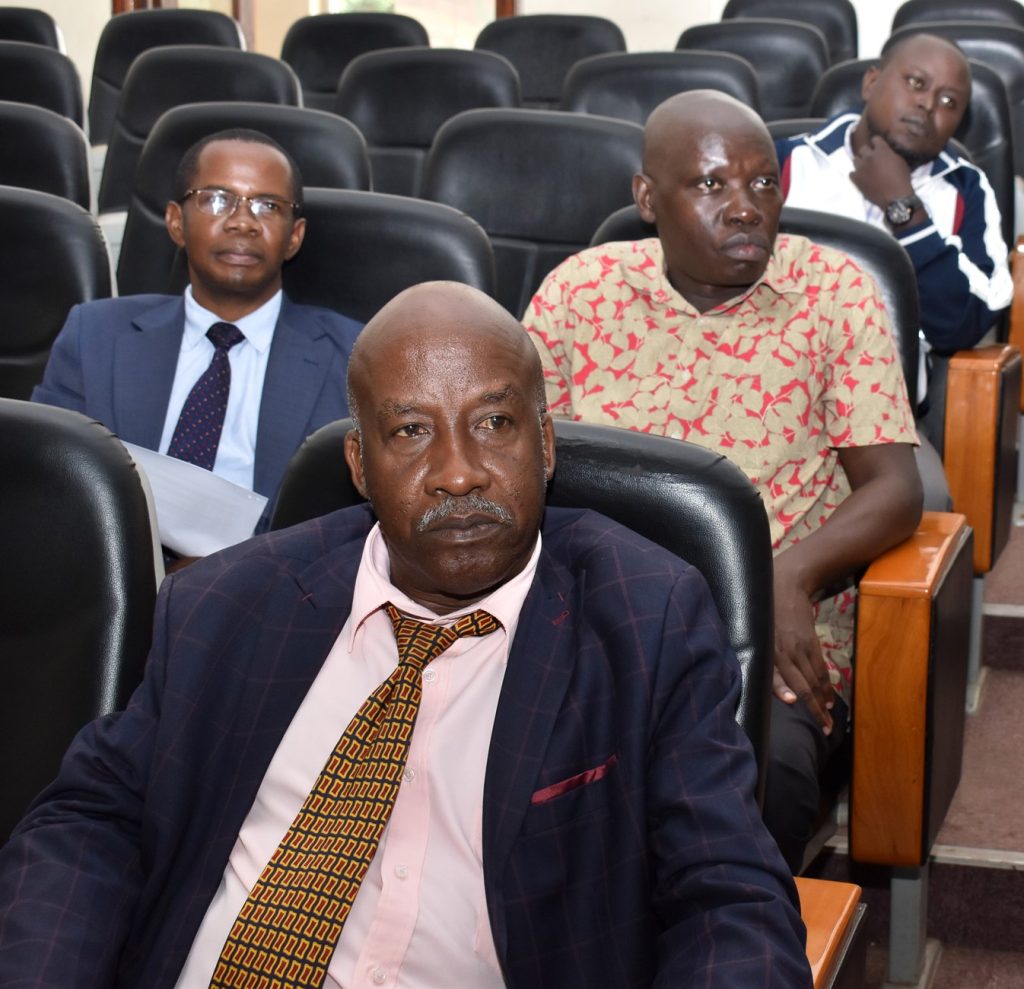
Project team at Makerere
At Makerere University, the project is coordinated by Dr Alex Nimusiima from the Department of Geography, Geo-Informatics and Climatic Sciences at CAES. Other Project members are; Dr Grace Nakabonge from the Department of Forestry, Biodiversity and Tourism; Dr Prossy Nakawuka from the Department of Agricultural and Bio-systems Engineering; Dr Twaha Ali Basamba from the Department of Agricultural Production; and Dr Alice Turinawe from the Department of Agribusiness and Natural Resource Economics.
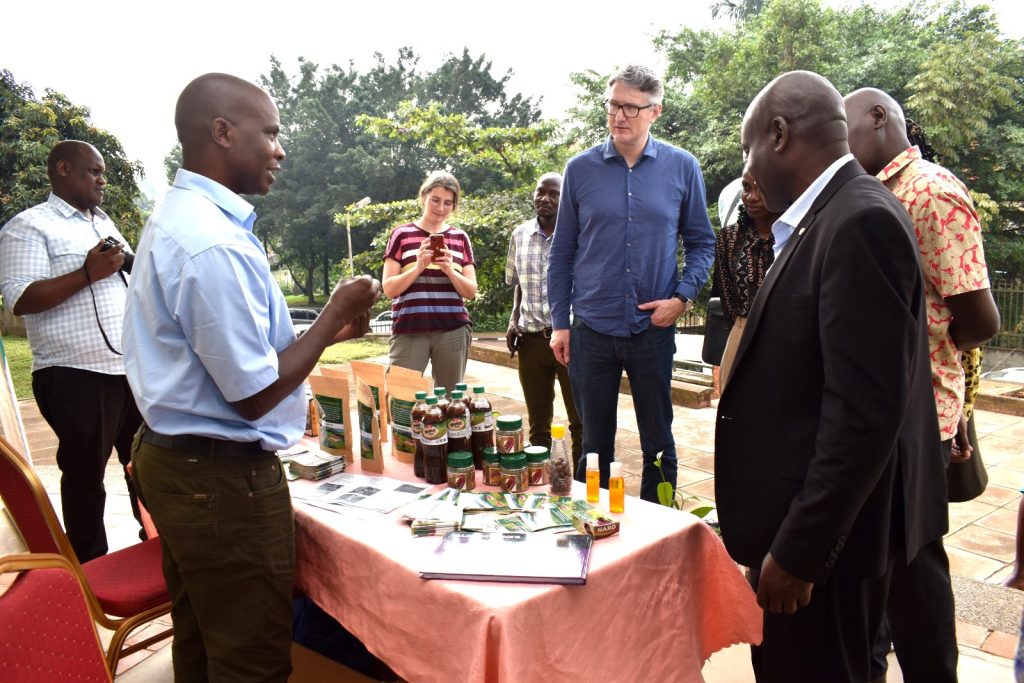
Remarks by the VC
In his address, the Vice Chancellor of Makerere University expressed excitement about the project and pledged Management support towards the realization of the objectives. “The project aligns well with our Strategic Goal 1 that aims to transform Makerere University into a research-led university, responding to national, regional and global development challenges, as well as contributing to global knowledge generation. It also speaks to our goal of increasing graduate enrolment at Makerere, and supports the agro-industrialisation agenda. This is a commendable initiative. As you aim to improve tea production and productivity, you should also plan to transform some to the yields into products that can be commercialised as one of the measures to improve the livelihoods of our people.” The Vice Chancellor appreciated Denmark for the support extended towards various development initiatives at Makerere.
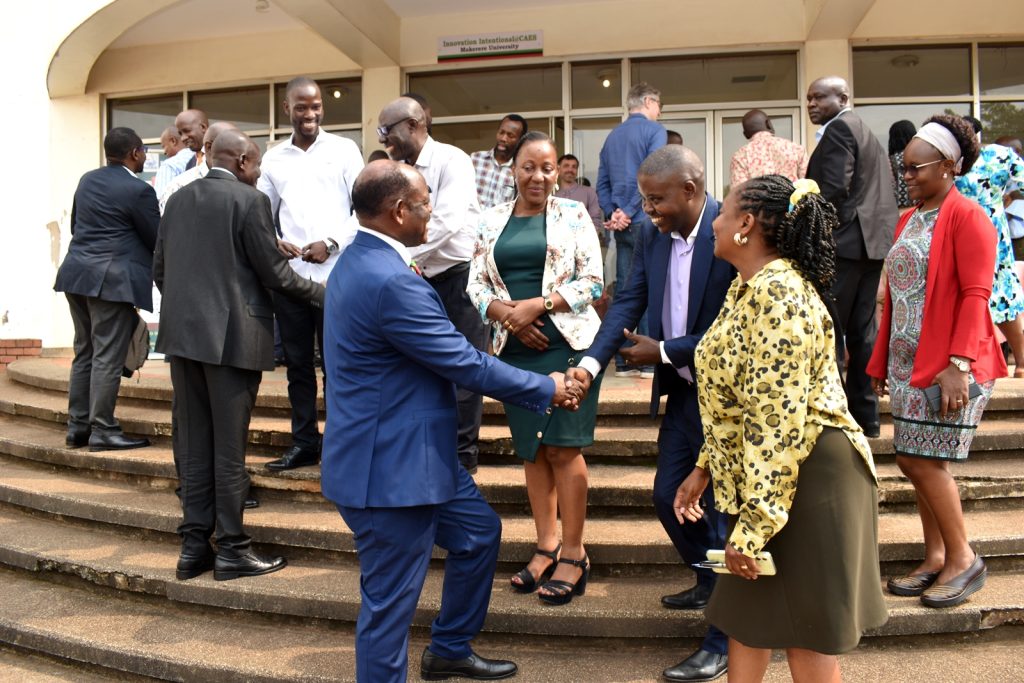
The Principal of CAES, Prof. Gorettie Nabanoga commended the research team, noting that the project is in tandem with the aspirations of the University Strategic Plan (2020-2023) and the CAES Pact for Transformational Change that aims to strengthen research and innovation, and to improve graduate enrolment. “In our bid to contribute to national transformation, we want to ensure that no aspect of development is left behind. We want to form an agenda that will cause transformational change and our focus will be translational research, research that creates positive impact on the lives of our people.”
You may like
-


When Birth Becomes the Most Dangerous Moment, Wanduru & the Work of Making Labour Safer
-
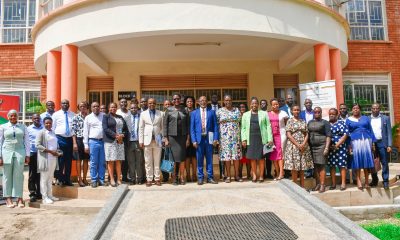

VC Opens Training for MoKCC Officials on Safeguards in Procurement
-


Study Alert: Power in Her Hands; Why Self-Injectable Contraception May Be a Game Changer for Women’s Agency in Uganda
-
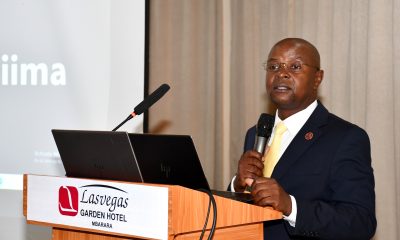

Building Skills for Better Public Investments: PIM Centre Trains Public Sector Economists
-


How Jimmy Osuret Turned Childhood Trauma into Evidence for Safer School Crossings
-
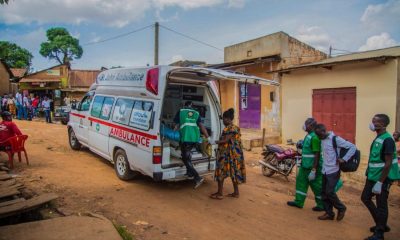

Holding the System Together During COVID-19: Steven Kabwama’s Research on Care Continuity
Agriculture & Environment
From Adversity to Excellence: The Inspiring Journey of Makerere’s Best Science Student, Esther Ziribaggwa
Published
5 days agoon
February 6, 2026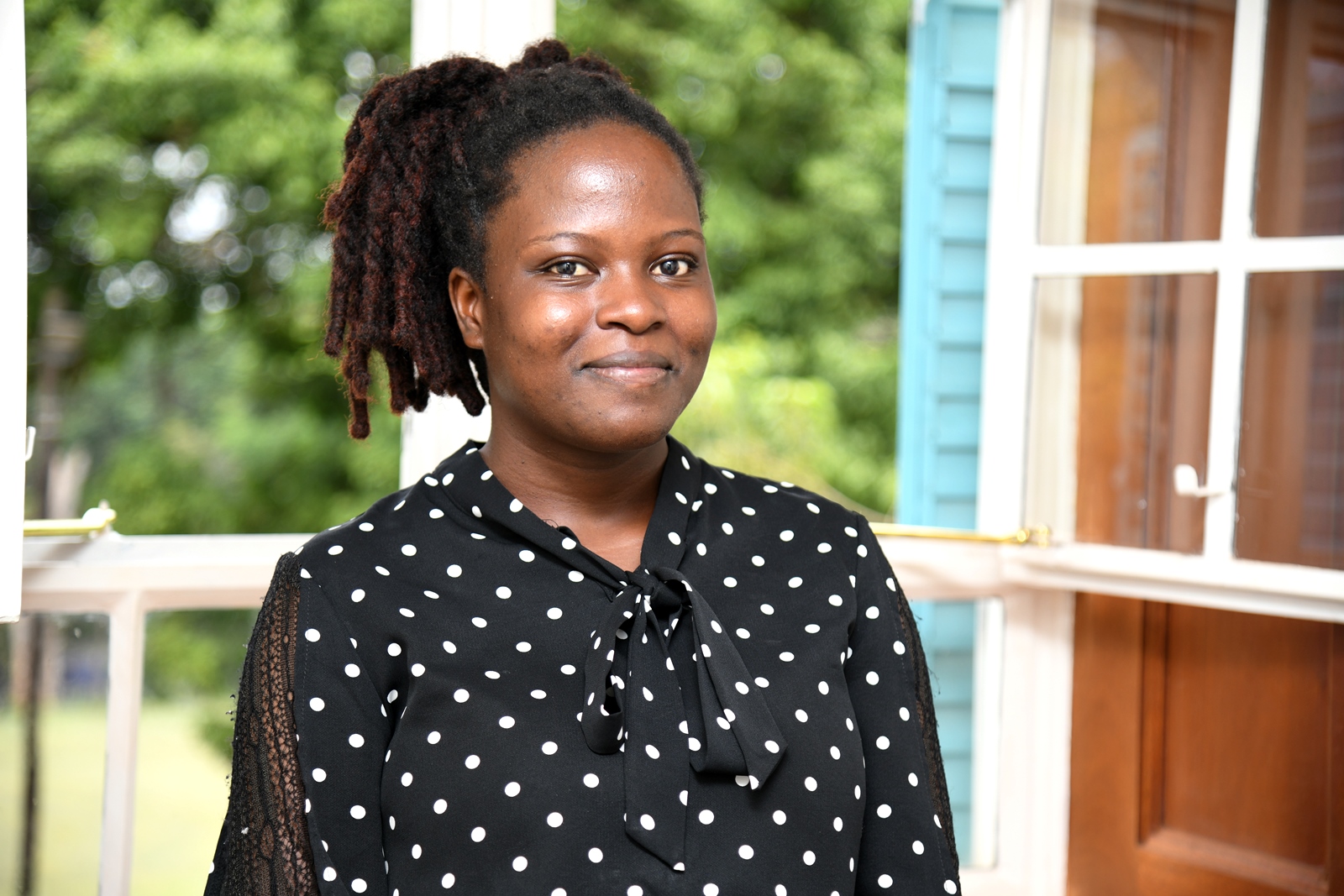
Growing up in Nkonge Village, Kyampisi Sub County in Mukono District, Esther Ziribaggwa learned early the meaning of resilience.
Born to Mr. Musisi Godfrey, a farmer, and Ms. Babirye Resty, a market vendor in Seeta, Mukono District, her journey from humble beginnings to becoming Makerere University’s top-performing student in the Sciences is a testament to her determination, hard work, and unwavering faith. She attained a CGPA of 4.77 in the Bachelor of Agricultural and Rural Innovation, a programme taught at the College of Agricultural and Environmental Sciences (CAES). She will be graduating from Makerere University on 24th February 2026, the first day of the 76th graduation ceremony.
Educational Journey and Navigating the Financial Hurdles to remain in School
Ziribaggwa’s journey to academic excellence has not been smooth. But her parents’ sacrifices laid the foundation for her dreams, even as life presented relentless challenges.
She began her education at Frobel Day and Boarding Primary School and later joined Seeta Boarding Primary School, where she excelled with 9 aggregates in her Primary Leaving Examinations. However, the transition to secondary school presented challenges that tested her resolve.
She joined Mpoma Royal College in Mukono District alongside her sister, who had scored 12 aggregates. Shortly after starting Senior One, their father fell seriously ill, requiring an intestinal surgery, and could not continue to work. With the family unable to pay school fees, both sisters dropped out for a year. It was only through the compassion of the school bursar and the then Head Teacher, Ms. Namazzi Connie, who reduced their fees from 800,000 to 380,000 Uganda Shillings, that Ziribaggwa and her sister were able to return. “The year out of school was a huge setback,” she recalls, “but I focused on catching up. I knew I couldn’t waste this second chance.” Her perseverance paid off. Despite the lost year, she completed her O’ Level with 25 aggregates in eight subjects.
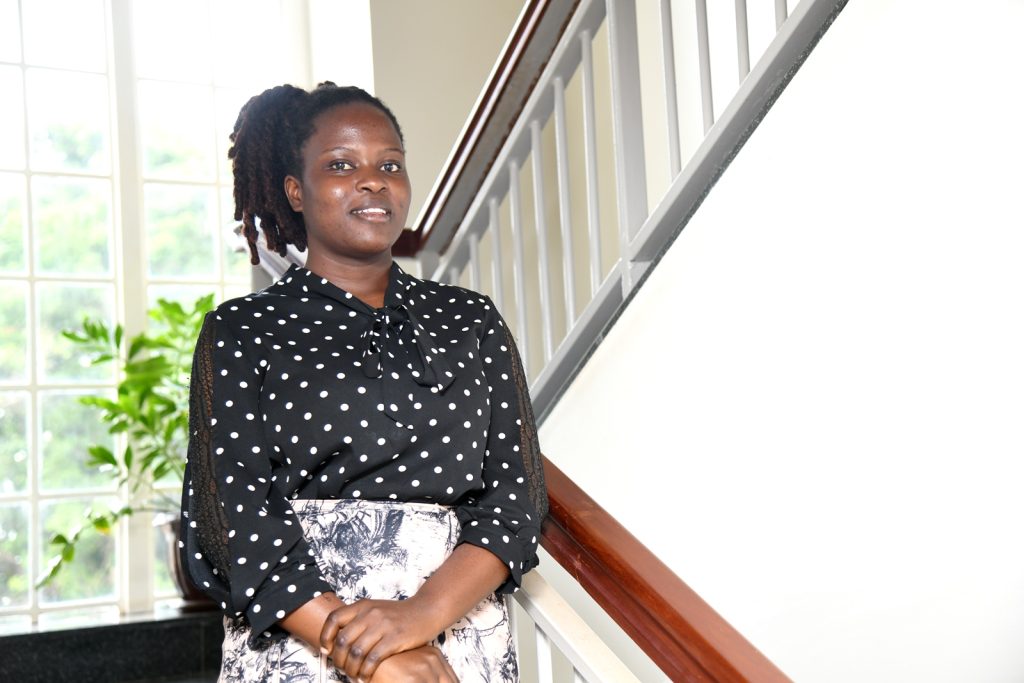
Her A’ Level years were marked by similar challenges. Due to financial constraints, Ziribaggwa attended three different schools. She initially enrolled at Seat of Wisdom Boarding School in Kayunga but was forced to leave when her family could no longer afford the fees. At the time, her father, the family’s sole breadwinner, had undergone a second operation and was unable to work. Her mother, a market vendor, stepped in to support her education and transferred her to Paul Mukasa Day and Boarding Secondary School in Mukono District as a day student. However, the long daily commute was exhausting, leading to a final transfer to Godmark High School in Mukono District where she completed her A’ Level in 2019 with 15 points in Geography, Economics, Agriculture, and Subsidiary Mathematics.
After completing secondary school, Ziribaggwa waited two years before joining university due to financial constraints. Although she had been admitted under the private sponsorship scheme to pursue a Bachelor of Statistics, she was unable to raise the required tuition. Following the outbreak of COVID-19 and the subsequent lockdown, an opportunity arose for her to obtain government sponsorship. At the time, there were no Senior Six leavers, prompting Makerere University to invite applications from candidates who had completed Senior Six within a specified period. The cut-off points across programmes were lowered, enabling her to secure government sponsorship to pursue a Bachelor of Agricultural and Rural Innovation.
Appreciation
She is deeply grateful to the Almighty, her parents, and everyone who supported her educational journey. She is specifically thankful to the Government of Uganda for sponsoring her university education, and to Ms. Namazzi Connie, her O-Level Head Teacher, for subsidizing her school fees. She is also grateful to all her lecturers at CAES and Jesus is King Ministry under the Makerere University Christian Union.
Message of Resilience to Fellow Students
To the students navigating similar challenges, Ziribaggwa shares a message of encouragement. “Never let your situation break you. There’s always going to be challenges, sometimes pushing you to what feels like a point of no return. But those moments should not define your future – they are a test of your resilience. Strive to outgrow them and become a better person, even when the journey feels impossible.”
Career and Aspirations
Ziribaggwa currently works in the extension division of Slow Food Uganda, an agricultural organization based in Mukono District, where her work focuses on women and youth. Although her dream was to become a medical doctor, her love for agriculture has grown over time and does not regret taking on this path. She aspires to become a Senior Agricultural Officer in the country, with the goal of improving farming conditions, particularly in the rural communities. Growing up in a farming community exposed her to many challenges faced by farmers, including unpredictable weather conditions that necessitate irrigation support, and improper use of agrochemical inputs, which pose risks to both soil quality and human health.
Ziribaggwa hopes to pursue further studies in crop and soil science. She draws inspiration from exemplary leaders like Hon. Rebecca Kadaga, former Speaker of the Parliament of Uganda, and First Deputy Prime Minister and Minister for East African Community Affairs. “I have always admired her for being hardworking, resilient, and eloquent,” she says, seeking to emulate these qualities in her own journey.
Agriculture & Environment
Call for Applications: QCF Postdoctoral Research Fellowships
Published
3 weeks agoon
January 20, 2026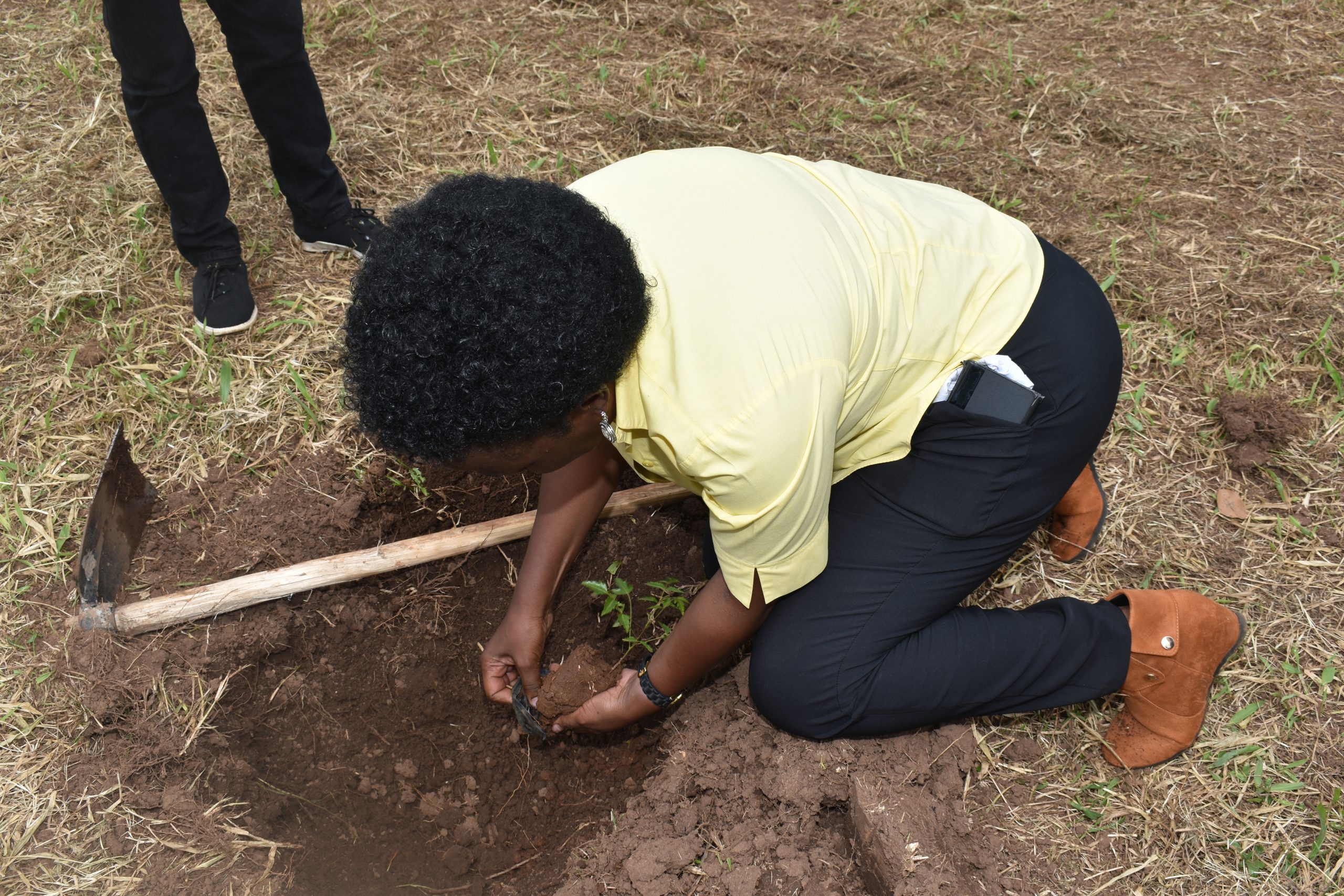
Makerere University’s Department of Geography, Geo-informatics and Climatic Sciences in partnership with Quadrature Climate Foundation and Red Cross Red Crescent Climate Centre are seeking two fellows for Quadrature Climate Foundation (QCF) Fellowship Programme. This is a two-year post-doctoral programme fully funded by QCF, which is an independent charitable foundation working for a greener and fairer future. Applications for the two-year post-doctoral fellowship are invited from individuals with demonstrated interest and expertise in locally led adaptation to climate change research. This initiative is a unique and excellent opportunity to expand the network of interested individuals with researchers and decision-makers, as well as deliver action-oriented research to inform policy and practice. Depending on their interest, each applicant should choose one of the two thematic areas offered under the fellowship program:
- Knowledge co-creation for locally led adaptation to climate change
- Decentralised decision making for effective climate change adaptation and resilience
The Fellow working on the Thematic Area 1: knowledge co-creation for locally adaptation will explore collaborative learning processes (including informal learning) for climate change adaptation among smallholder farmers with focus on Uganda, with linkages to related work in Bangladesh, Mozambique and Nepal. The overall intention is to generate understanding of how decision making processes, across scales, can be linked to local and context specific knowledge systems and process for epistemic just adaptation. The key research questions are:
- What does the process of co-creating knowledge for locally led climate change adaptation look like in a rural smallholder farming setting of a Least Developed Country (LDC)?
- What are the possibilities, promises and pitfalls of knowledge co-creation for locally led adaptation planning?
The research will intentionally contribute to methodological and practice advances in co-creation of knowledge for locally led climate change adaptation.
The research on Thematic Area 2: decentralised decision making for effective adaptation and resilience will undertake scientific interrogation of a climate finance mechanism that has been designed for locally led adaptation and resilience in Uganda. The Fellow will largely focus on testing selected assumptions behind the design of the mechanism. The key questions are:
- How does effective locally led climate change adaptation and resilience building investment decision making look like in practice?
- What works and how does it work? What does not work and why?
Key considerations in the research will include local leadership, inclusion, context specificity, cross-scale, and capability strengthening. The targeted contributions of the fellowship include improved knowledge management for climate resilience planning and decision-making, strengthened evidence-based research-policy-practice dialogues, framework(s) for integrating local and experiential knowledges in resilience building investment decision making processes, among others.
The Fellows will be based, full-time, at Makerere University, Kampala as a core member of the team working on locally led adaptation and resilience. Their work will be conducted under the auspices of the Least Developed Countries Universities Consortium on Climate Change (LUCCC) through which Makerere University is engaged in research and knowledge management collaborations. The Fellowships will focus on Uganda, but with deliberate linkages across LDCs, which might necessitate travels for in-person working meetings.
Roles and responsibilities of the Postdoctoral Research Fellow
The Fellow will be highly motivated to work with a transdisciplinary research team, grow their research expertise, engage with climate change researchers, decision-makers, practitioners and generate different categories of publications. Makerere University will appoint a locally based mentor to the Fellow to provide professional development support. Where needed, the Fellow will participate in teaching and community outreach activities including knowledge sharing in ways that foster collaborative research for adaptation policy and practice.
Requirements:
- A PhD, awarded within the previous three years, in a related discipline (e.g., geography, climate and society, sustainability, adaptation governance, epistemic justice, climate finance).
- Knowledge and experience of locally led adaptation in the agriculture sector.
- Experience in synthesizing and managing datasets and literature.
- Experience in, and knowledgeable of, participatory and collaborative action-oriented research methodologies and tools.
- Demonstrated ability to produce research information products for different audiences.
- Excellent written and verbal communication skills in English
- Demonstrated interest and experience in transdisciplinary collaborations across-scales including with local communities, decision-makers and practitioners in LDCs
- Experience in giving international oral presentations and interest in public communication for wide-ranging categories of audiences
- Data and information visualisation skills will be an added advantage
Application requirements:
Applicants should submit a single PDF with: (i) an application letter not longer than 2 pages that includes indication of theme of interest, a description of research interests, research expertise, and an explanation of how they can work as part of the transdisciplinary research team in line with the fellowship objectives described above; (ii) a CV including a publication list; (iii) copies of academic transcripts and/or certificates; (iv) an example of written work; (v) email addresses of two references who have been directly involved in their PhD research.
Applicants must submit the PDF application document to colocal.caes@mak.ac.ug. Please type “LUCCC PDR Application: COLOCAL-Makerere” as the subject line of the email.
Closing date
Midnight (GMT+3) on 27th February, 2026 or until the position is filled.
Selection process
Eligible and complete applications will be considered followed by communication with short-listed applicants. Makerere University, in consultation with Quadrature Climate Foundation and the Red Cross Red Crescent Climate Centre, will conduct interviews of the short-listed applicants.
If you have not heard from Makerere University within two months of the deadline, please assume your application has been unsuccessful.
Contact details for enquiries about this post-doc fellowship: colocal.caes@mak.ac.ug
Makerere University reserves the right to
- Disqualify ineligible, incomplete and/or inappropriate applications;
- Change the conditions of the award or to make no awards at all
-The QCF Fellowship Programme is a two-year, post-doctoral programme fully funded by Quadrature Climate Foundation (QCF).
-Quadrature Climate Foundation is an independent charitable foundation working for a greener and fairer future. For more information on QCF, please visit qc.foundation.
Agriculture & Environment
Mak-CAES Trains Small-Scale Processors on Soybean Value Addition & Product Development
Published
2 months agoon
December 16, 2025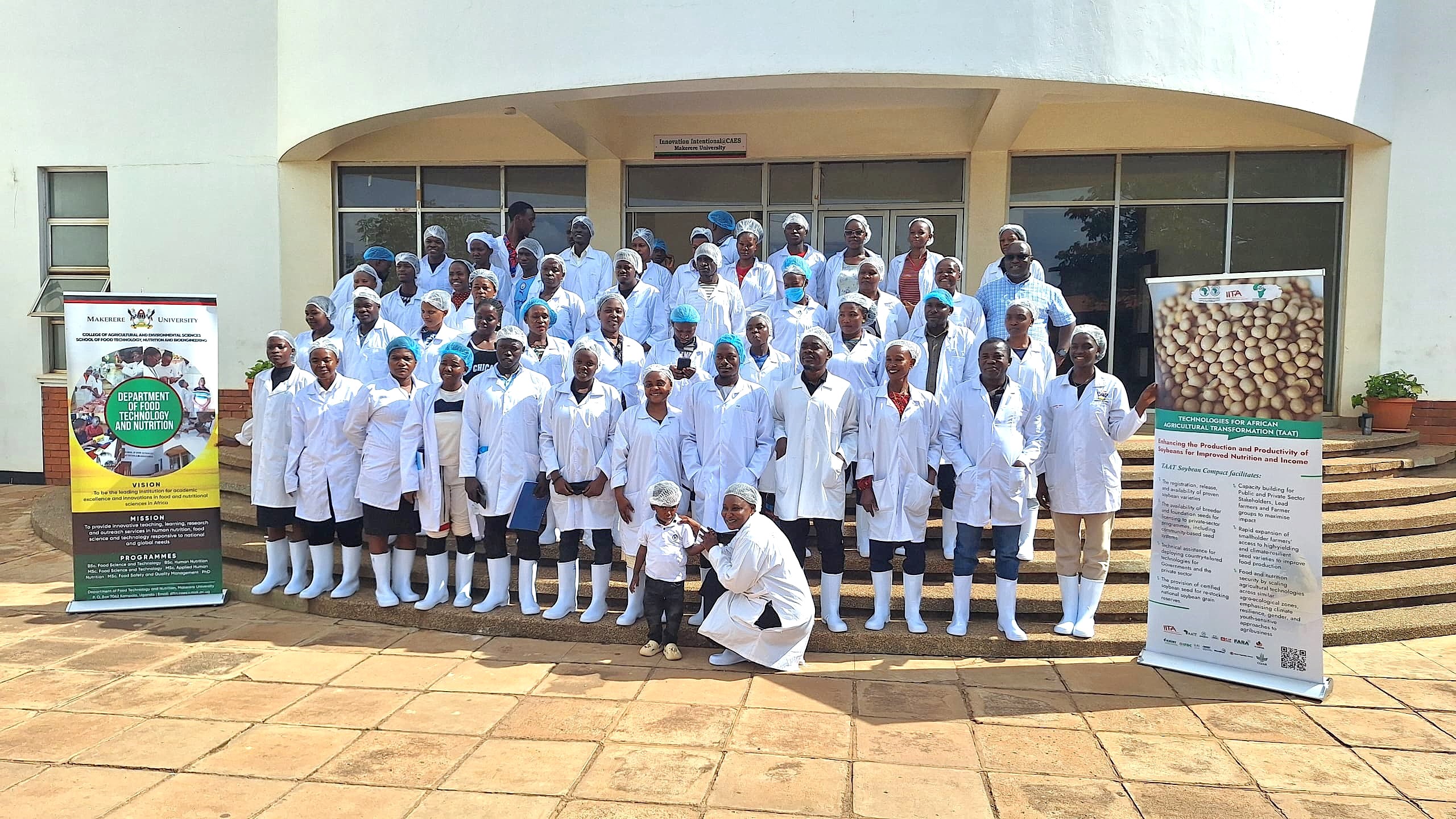
The Department of Food Technology and Nutrition (DFTN), Makerere University, in collaboration with Smart Foods Uganda Ltd, successfully conducted a five-day intensive training on soybean value addition and product development from 24th to 28th November 2025. The training was implemented with support from IITA Uganda under the Training for African Agricultural Transformation (TAAT) Soy Compact Project, aimed at strengthening agro-processing capacities and promoting soybean utilization for improved nutrition and livelihoods.
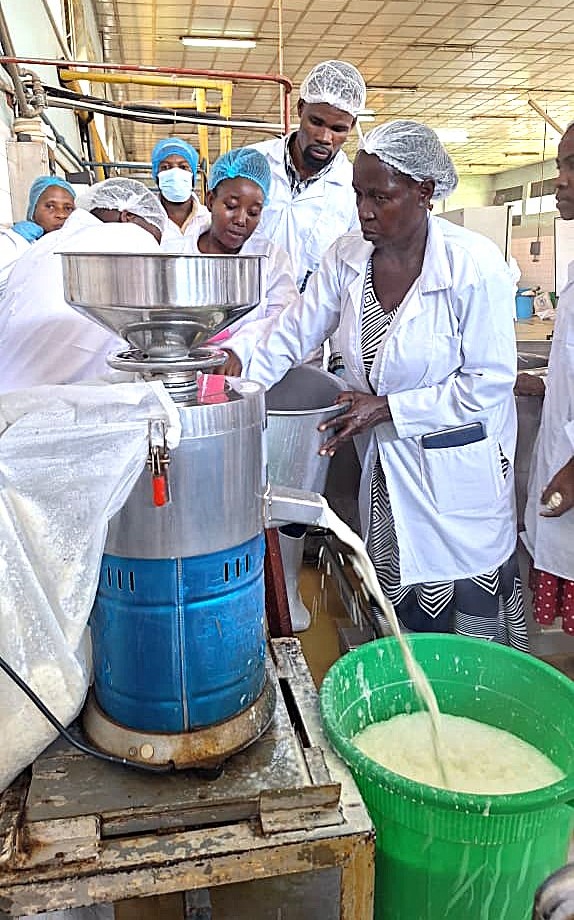
The training program was highly practical and skills-oriented, featuring extensive hands-on sessions designed to equip participants with applicable processing and product development competencies. Most of the practical activities were hosted at Makerere University’s Food Technology and Business Incubation Centre (FTBIC). Participants also benefited from an industry exposure and experiential learning session at Smart Foods Uganda Ltd in Bweyogerere, where they gained first-hand insights into commercial-scale soybean processing operations, quality control systems, and product marketing strategies.

Key thematic areas and technologies covered during the training included soybean nutrition and associated health benefits; assessment of quality attributes of soybeans and soy-based products; application of Good Hygiene Practices (GHP) and Good Manufacturing Practices (GMP); and processing of high-quality soy products. Practical sessions focused on the production of soymilk, tofu, soy yoghurt, soy flour, and soy coffee, as well as the formulation of soy-fortified composite porridge flours. Participants were also trained in the development of various soy-based bakery products, including bread, mandazi, daddies, and baghia. In addition, sessions on marketing, branding and positioning of soy products, as well as UNBS certification requirements and documentation, were conducted to enhance market readiness and regulatory compliance.
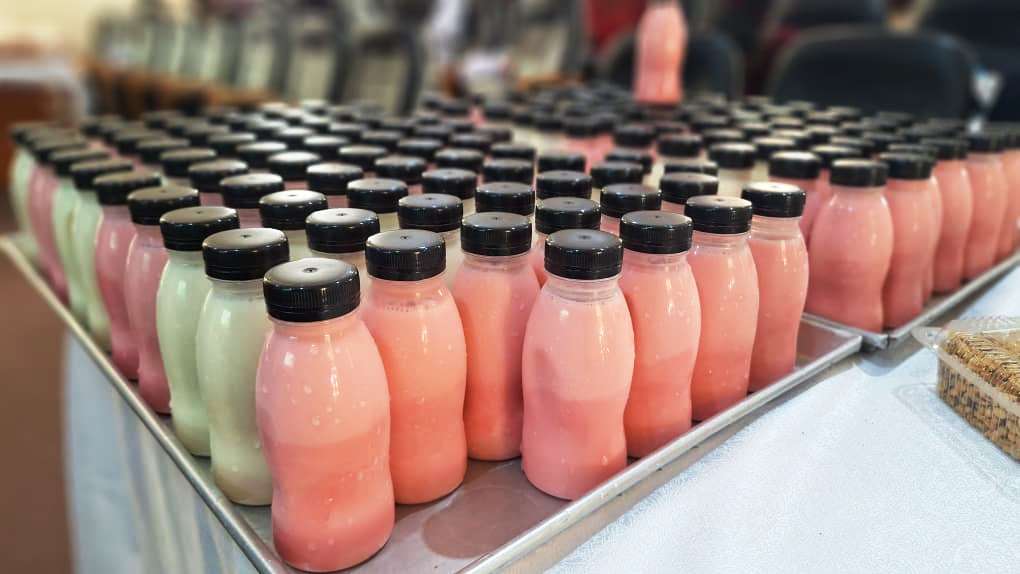
The training attracted a total of 57 participants, comprising small-scale soybean processors and graduating university students, thereby fostering knowledge exchange between academia and industry. Overall, the training contributed significantly to building technical capacity in soybean value addition, promoting entrepreneurship, and supporting the development of nutritious, market-oriented soy-based products in Uganda. The School of Food Technology, Nutrition, and Bioengineering, under the leadership of Dr. Julia Kigozi (Dean), conducts periodical trainings for agro-processors across the country to enhance technical capacity, improve product quality, and promote the adoption of modern, safe, and sustainable food processing practices. These trainings are designed to equip agro-processors with practical skills in food safety, quality assurance, value addition, post-harvest handling, nutrition, and bioengineering innovations, thereby enabling them to meet national and international standards. Through this outreach, the School contributes to strengthening agro-industrial development, reducing post-harvest losses, supporting entrepreneurship, and improving food and nutrition security while fostering stronger linkages between academia, industry, and communities.
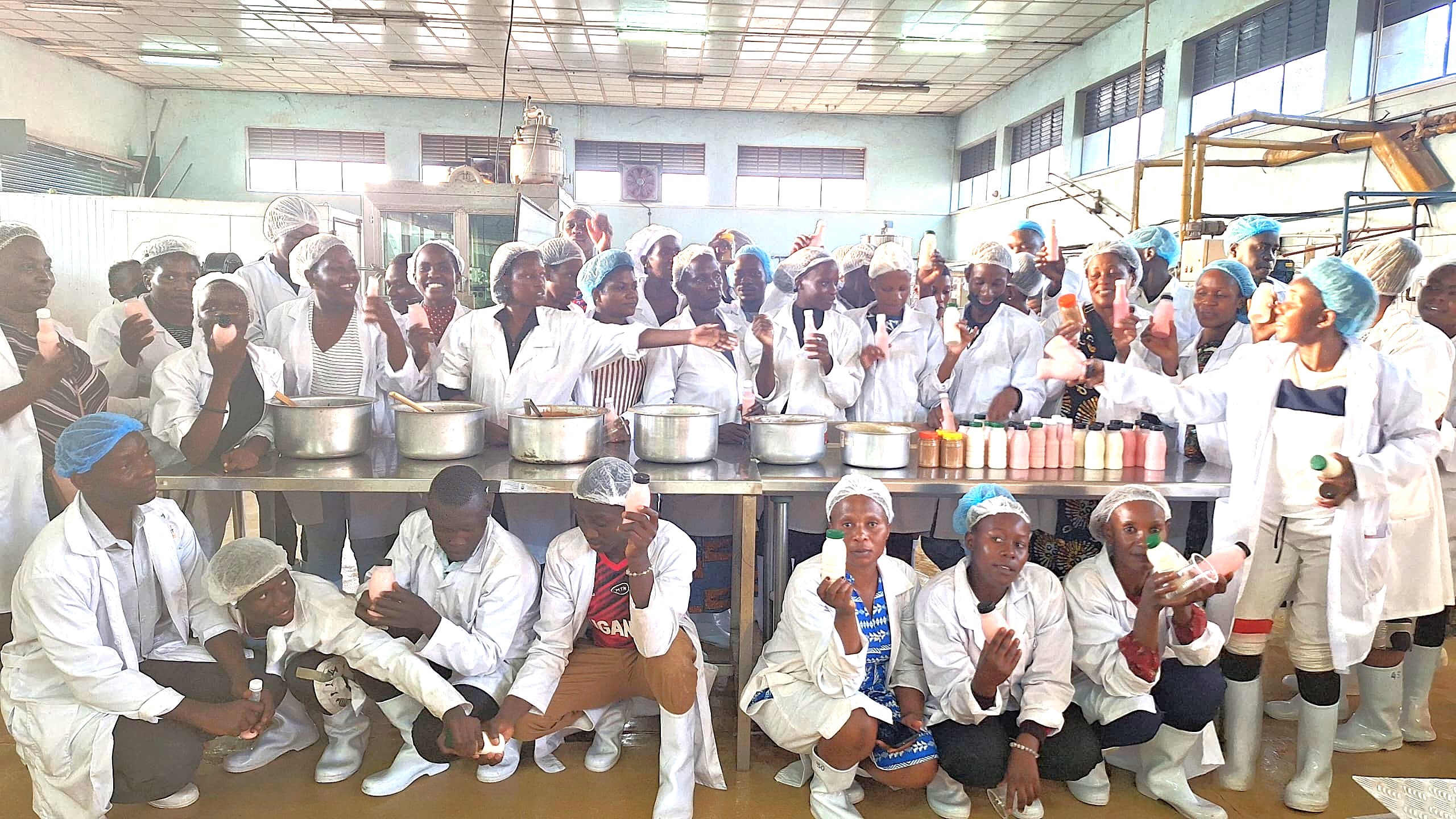
Trending
-

 General1 week ago
General1 week agoCall for Applications: Admission to Postgraduate Programmes 2026/2027
-

 Natural Sciences1 week ago
Natural Sciences1 week agoSimon Mungudit: Mak’s Best Performing Male Science Student & Rising Star in Petroleum Geoscience
-

 Agriculture & Environment5 days ago
Agriculture & Environment5 days agoFrom Adversity to Excellence: The Inspiring Journey of Makerere’s Best Science Student, Esther Ziribaggwa
-

 Health1 week ago
Health1 week agoCall For Applications: MakNCD Masters and PhD Training Opportunities
-

 Health1 week ago
Health1 week agoEU Earmarks Shs19.8bn for 15 Joint PhD Scholarships in Health, Environment Research
